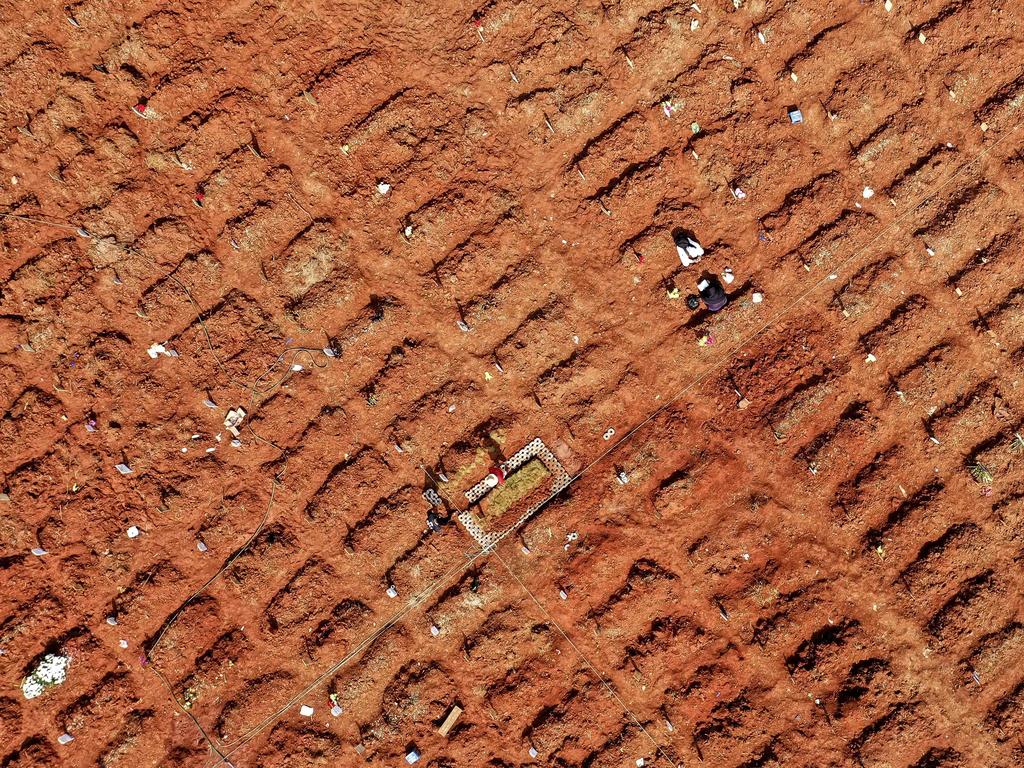Covid-19 elimination strategy is a war no one can win


That isn’t because it doesn’t work but because it works all too well, at least judged by its own criteria: the public health response ensures that the probability of catching Covid, much less dying from it, in Australia is virtually zero. There is, as a result, little incentive to be vaccinated – and even those who do want vaccination could reasonably conclude that they should wait until the messenger RNA vaccines, which seem to have fewer dangerous side-effects, become more widely available.
However, with vaccination rates still very low, each outbreak, no matter how small and localised, sends state governments into a panicked response that persists until there are no cases of community transmission. That may curtail the risk of infection but it also perpetuates the vicious cycle in which we are now trapped.
Viewed from the perspective of social theory, our predicament is merely an example of a “collective action” problem. Collectively, we would gain if vaccination rates were substantially higher; but so long as the likelihood of suffering serious consequences from Covid remains insignificant, each individual does better to hold back, allowing others to bear the risks and hassles vaccination entails.

Put in those terms, the solution is obvious: governments should increase the net benefits of being vaccinated – for example, through exemptions from travel bans – and/or reduce its costs, not only by more rapidly boosting vaccine availability but also by ensuring that anyone who experiences major adverse effects is compensated as if a workplace accident had been involved.
It is, however, hard to judge just how effective those remedies would be. Indeed, some options might even backfire – for example, announcing that compensation will be provided tends to make the risk more salient, strengthening the reluctance the compensation was intended to overcome.
Rather, the best approach, which has been adopted by Singapore, may be for governments to let their citizens know that while the protective measures aimed at the most vulnerable would remain in place, other protections would be steadily phased out, exposing individuals to more risk and placing squarely on their shoulders the responsibility to take precautions – not least through vaccination for themselves and their families.
We would, in going down that path, eventually treat Covid in much the same way we deal with other dangerous but manageable infectious diseases, such as the flu. And by the same token, we would treat Australians as responsible adults who could manage Covid as maturely as they handle life’s other perils, with government’s role being, crucially, to guarantee ready access to vaccines and ensure that any residual protections (such as vaccination checks on inbound international travellers) are efficiently applied.
Unfortunately, no matter how great that strategy’s benefits might be, it is far from clear that our governments could or would credibly commit to its implementation, which requires a willingness to rely on the public’s good sense – and not to flinch when Covid cases occur, as, from time to time, they surely would.
The fact so many Australians still view Covid through the lens of the assessments made when it first appeared, and regard the restrictions as the price we pay for avoiding catastrophic outcomes, only compounds the political hurdles that strategy is likely to face. But those hurdles are also symptomatic of a broader trend.
Whatever its other effects, the pandemic seems to have heightened the community’s aversion to risk – a risk-aversion that has been primed in recent years by wave after wave of apocalyptic rhetoric.
With humanity constantly portrayed as huddling, frightened and forlorn, in the antechamber of the planet’s extinction, the “precautionary principle” – which makes avoiding even highly uncertain dangers the prime duty of government – has too often become public policy’s default approach, swamping the measured assessment of costs and benefits. And as that principle governs ever broader swathes of economic and social activity, we have gone from being actors who shape their own destinies to subjects who relinquish their independence in exchange for shelter from our fears, phobias and misfortunes.
The longer-term results of that evolution should not be surprising: they were certainly apparent to Hans Jonas, who set the precautionary principle’s philosophical foundations in his magnum opus, The Imperative of Responsibility, which first appeared in German in 1979.
Permeated by Jonas’s ongoing debate with his great teacher, Martin Heidegger, whose antinomianism he completely rejected, The Imperative of Responsibility is as intellectually complex as it is unflinching in drawing out the implications of its pantheistic logic. But despite the complexities, which mean that very few of those who stridently adopt its conclusions have ever read it, the heart of Jonas’s argument is straightforward.
With the threats to the survival of mankind mounting, he argued, societies that were rich enough to worry about them would progressively have to abandon the substance, if not the form, of democracy, instead vesting power in “guardians” of superior insight who, like those sketched out in Book II of Plato’s Republic, would guide the unenlightened masses into accepting the precautionary principle’s drastic implications for living standards and traditional liberties.
“Banished from the public realm”, liberty would remain only as an “ontological capacity”, rather than as an existential actuality, allowing the guardians’ regulatory “tyranny” to keep man’s capacity to harm himself and the planet firmly in check. The safety blanket would, in other words, serve to suffocate the very way of life it was intended to preserve, thus “prizing the physical survival of the species over its freedom”.
Writing in the shadow of Auschwitz and Hiroshima, Jonas thought that sacrifice was inevitable and desirable; most Australians, one hopes, would not, preferring the discomfort of coping with the unknown to the vacuous promise of a comprehensive protection from risk that no government could actually honour.
Ultimately, uncertainty is simply the fact that more things can happen than will happen; to entirely remove it is to remove life itself. But the pressures to seek security are unceasing, and they will only intensify for so long as we remain in the trap we are now in – as will the fear of freedom and the flight from self-reliance. Already at war with itself, the elimination strategy should not be allowed to become a siege without an ending in a battle that no one can win.







As other countries prepare to live with Covid, Australia and lockdowns remain joined in a fatal embrace. The problem is not just the harm wreaked by the unpredictable disruptions to daily life, the drastic restrictions on domestic and international travel and the myriad other erosions of basic freedoms; it is that the elimination strategy has degenerated into a policy at war with itself.